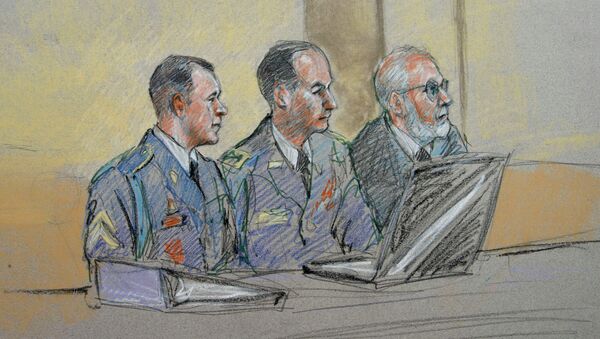Bergdahl, 30, famously walked off his post in Afghanistan in 2009 and was captured and held by the Taliban for five years until the Obama administration arranged a prisoner swap in which he was exchanged for five Guantanamo Bay detainees. He faces a court martial on charges of desertion and of endangering the troops sent to search for him, the latter of which could get him a life sentence.
Bergdahl says he wanted to draw attention to issues endangering his unit; others have said he intended to defect to America's enemies. The case remains deeply divisive, with Republican opponents of the 2014 prisoner swap accusing then-President Barack Obama of endangering national security.
Bergdahl's defense lawyer, Eugene Fidell, had sought to get the charges against his client dismissed on the grounds that he could not receive a fair trial after the US commander in chief had denounced him as a "dirty rotten traitor" and made other comments about the sergeant's guilt.
In a motion filed shortly after Trump's election, Fidell cited dozens of instances of public criticism of Bergdahl by Trump, including statements by the now-president like "30 years ago, [Bergdahl] would have been shot."
As any military juror would ultimately report to Trump as commander in chief, he argued that they would not be able to ignore the president's statements.
Colonel Jeffery Nance, who is presiding over Bergdahl's trial, found that Trump's statements were "were disturbing and disappointing" and were potentially "problematic," but ultimately decided that they did not constitute unlawful command influence, as Fidell claimed.
"No reasonable member of the public, apprised of all the facts and circumstances and seeing campaign rhetoric for what it is, would believe that because candidate Trump said those troubling things and is now President Trump, the accused has been or will be denied a fair trial," Nance wrote, the New York Times reports.
Jurors can tune out campaign trail rhetoric, Nance ruled. "The accused was merely the foil for delivering that political message," he wrote. "All reasonable members of the public and potential panel members will know that was what he was doing and will not allow the rhetoric to affect their impartiality," AP reports.
He did say that he would allow defense attorneys a great deal of discretion to question potential jurors about Trump and said Bergdahl's team could request the charges to be dismissed again after finding out how the president's comments might have affected the jury pool.
Fidell said he would appeal the ruling to the United States Army Court of Criminal Appeals February 27, telling the New York Times that the issues the case presents are of "tremendous significance" for "the integrity of the military justice system."




